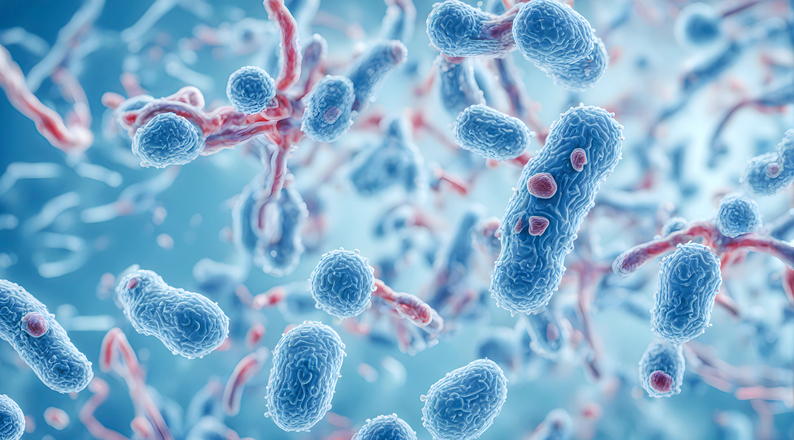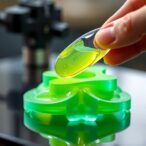
Credit: fatido / 2220291848 / E+ / Getty Images
Last Friday, June 27, was World Microbiome Day. The theme was “Microbiome 101: What You Need to Know” with the overall goal of “simplifying the science, focusing on raising awareness, and providing clear, accessible information about microbiomes.”
An announcement was coordinated with the day that marks a significant step forward in the global effort to create a “microbial Noah’s Ark” to preserve the world’s diverse collection of healthy microbes before they disappear. The project, the announcement stated, is now entering an active growth phase. Indeed, a perspective article, “The Microbiota Vault Initiative: Safeguarding Earth’s microbial heritage for future generations,” was published in Nature Communications at the same time.
In the article, a team of 25 scientists involved in the formation of the Microbiota Vault Initiative reported their successes and laid out an ethical framework to ensure equitable collaboration and depositor sovereignty. This set of principles is designed to guide the initiative in its mission to safeguard microbial diversity for future generations. The authors noted that “urgent action is required to preserve microbial diversity.”
“The Microbiota Vault Initiative represents a proactive effort to protect and preserve the microbial life that is essential for the health of our planet and its inhabitants,” said Maria Gloria Dominguez-Bello, PhD, president of the initiative and professor in the Department of Biochemistry and Microbiology at the Rutgers School of Environmental and Biological Sciences. “Through global collaboration and ethical governance, Rutgers University is contributing to safeguarding Earth’s microbial heritage.”
Microbiomes are being threatened by human activities that disrupt their natural balance, leading to increased risks of allergies, autoimmune diseases, and metabolic disorders. In food, the excessive use of preservatives and additives can harm beneficial microbes.
“The microbiome is under big threat, a threat that is in many ways analogous to climate change,” said Martin Blaser, PhD, a member of the board of directors for the initiative, and director of Rutgers’ Center for Advanced Biotechnology and Medicine. “Human activities are depleting our microbiome, and there’s lots of evidence of that.”
Environmental microbiomes are affected by pollution, climate change, and habitat destruction, which can lead to the loss of microbes that regulate greenhouse gas emissions and maintain ecosystem stability.
The idea of the initiative is to support efforts to identify healthy microbes, store them, and freeze them before they disappear, said Blaser. “It’s very much a long-term project,” he said, “because maybe 100 years from now, having saved these microbes could prevent a major disaster.
During the now-completed pilot phase, scientists marked several milestones. They collected more than 2,000 fecal specimens and samples of fermented food from various nations. The effort grew from a handful of scientists and nations to over 100 researchers from 32 countries. Microbial samples are stored temporarily in cryogenic conditions at the Institute of Medical Microbiology at the University of Zurich.
In the next phase of the initiative, which Dominguez-Bello refers to as “Growth Phase 1” and runs to 2029, scientists will expand the collection to 10,000 samples and actively seek government funding beyond their present philanthropic and university support. Plans are underway to establish a permanent site for the vault, with potential locations being considered in Switzerland, Canada, and other locales with cold climates.
The ethical framework of the initiative outlined in the paper is designed to ensure that the preservation of microbial diversity is conducted in a fair, respectful, and inclusive manner. “We are absolutely committed to developing the Microbiota Vault in a way that maximizes equity around the world,” Dominguez-Bello said.
Some key abiding principles include depositor sovereignty, equitable collaboration, and ethical governance. The original collectors will retain ownership and control over their microbial samples. The initiative will emphasize the importance of respecting local knowledge and ensuring that any benefits are shared fairly. In addition, ethical considerations will be prioritized, including the rights of indigenous communities and the need for transparent and inclusive decision-making processes.
Some enabling technologies to take full advantage of the collection don’t yet exist, but scientists working on the initiative envision a time when the samples may be used to develop new medical treatments, improve agricultural practices, and restore damaged ecosystems.
“We believe that one day the science will improve sufficiently so that we will have really good restorative techniques,” Blaser said. “But if it is too late, and key members of the microbiome are gone, like the dodo bird, we can’t restore them, unless we have them safely stored away.”



